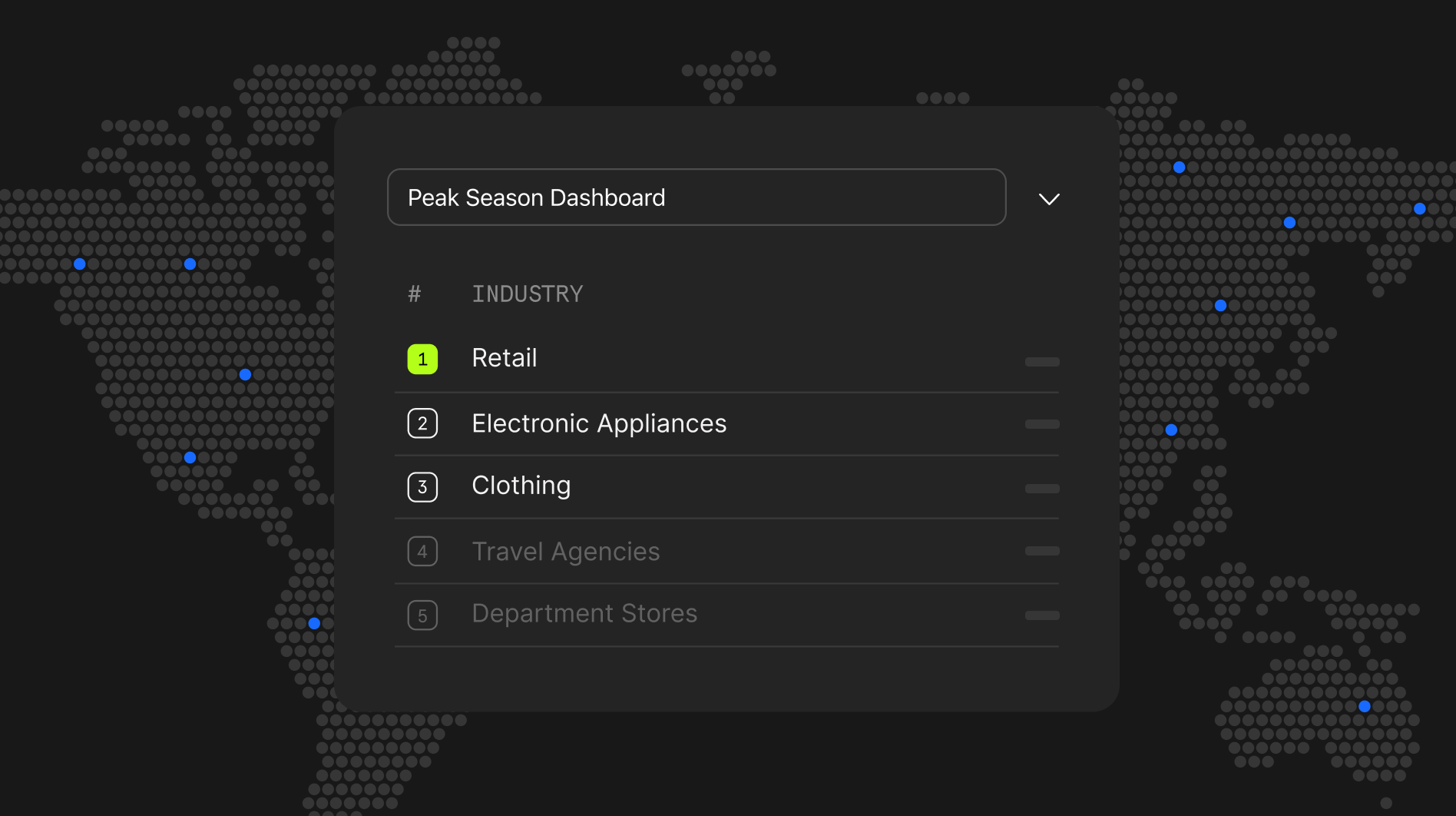The world is back on the move. The last few months have marked a turning point for the travel industry as restrictions ease, making it easier for people to travel for work and leisure.
The third quarter of 2021 saw a considerable rebound in travel and bookings, primarily driven by European holidays and more extended stays booked by 'digital nomads'. These trends have allowed companies like Airbnb to report record sales and earnings that beat analysts' estimates. The reopening of the United States to fully vaccinated international travelers is sure to accelerate the recovery also.
That's not to say challenges don't remain in the short-term. The situation in many countries remains volatile and the risk of further restrictions to movement is ever-present.
However, change is creating new opportunities. Travel organizations can capitalize on these changes in habits by utilizing new technology to innovate and develop new offerings that meet consumer demands.
The pandemic effect: how travelers' priorities have changed The pandemic has also permanently changed customers' attitudes and expectations to travel.
Flexibility Flexibility has become customers' top priority. Due to the threat of travel restrictions and other uncertainties, travelers are more likely to make bookings at the last minute. Customers also want to cancel or reschedule on short notice.
Hygiene Cleanliness and safety have become deciding factors when booking accommodations. The data shows travelers favor staying in private accommodation offered by brands like Airbnb and Vrbo rather than large hotels that have shared areas like lobbies and elevators.
Payments The ongoing uncertainty has made alternative payment methods more popular. Case in point, there's a growing demand for deferred payment plans and buy now pay later schemes. In a challenging economic climate, these options allow customers to defer payments to a later date and spread the cost of a holiday.
Cash refunds don't have to be the default option
The continuing impact of the pandemic on international travel means that travelers are placing a premium on the ability to cancel and get an immediate refund should disruption impact their plans. However, this creates several challenges for travel operators, especially around cash flow.
One simple, risk-free solution is to offer alternatives instead of defaulting to cash when customers ask for refunds — offering a travel voucher that's valid for 12 or 24 months, for example.
Travel vouchers provide the customer flexibility, but they also help operators retain the customer, preserve cash flow, and avoid chargebacks. And, to improve the customer experience further, these operators could also attach exclusive discounts or bonuses to them.
Offering a discount in an unfavorable economic climate may sound counter-intuitive. But studies have shown that, when done right, discounts and bonuses can encourage brand loyalty and customers to spend more.
Not every customer will be happy to take a voucher, of course. So it's equally critical to have systems in place that simplify cash refunds and minimize the impact on cash flow. Using escrow accounts that hold it until the day of travel is one approach operators can use.
Travel as a subscription
If vouchers can help preserve much-needed cash flow when travel plans go awry, subscriptions can offer operators steady, predictable revenue while giving customers more flexibility.
Case in point, for a flat monthly fee, luxury travel providerInspirato allows customers to book luxury hotels, resorts, cruises, and other experiences from a year in advance up to 2 days before departure. There are no additional costs, fees, or taxes to pay, and you can cancel or reschedule for free.
But the subscription model doesn't just work for high-end vacations. For example, Zoku, an Amsterdam-based hotel chain, has started offering subscriptions aimed at remote workers and digital nomads.
"The vision," says brand director Veerle Donders, "is that remote workers will spend time with us in different cities every year. Long-term, we anticipate that the creative audiences we serve will choose to pay an annual subscription to be part of the global Zoku community."
We see that subscription models are becoming increasingly popular — especially amongst the younger demographics that have grown up with subscription services like Netflix, Amazon Prime and HelloFresh. So while it is a new concept in travel, the ability to build customer loyalty through offering perks and more personalized experiences through a subscription model is an interesting one for many travel operators to explore.
Taking the friction out of the payment experience
Our research finds 56% of customers won't complete a purchase if they can't use their preferred payment method. Similarly, 52% are put off if the checkout process seems too complicated, and 37% will go elsewhere if payment is declined.
For online travel operators, it's vital to have a simple, straightforward, user-friendly payments process, including payment retry technology, as well as suitable payment options for the market and target demographic.
The payment currency is also a critical factor to consider. Consumers like to pay in their home country’s currency. It helps them understand the cost upfront through the booking process and avoid their issuing bank's foreign exchange fees. Travel websites offering multi-currency pricing often see higher conversions and gain additional revenue from the currency conversion.
The growing preference for cashless and contact-free payments has motivated venues and booking agents to address other pre-existing points of friction that have been a source of frustration for travelers. Some hotel chains now allow travelers to settle any outstanding payments through an app — rather than queue at the front desk.
The contact-free experience offered by Airbnb — and increasingly brands like Booking.com and Expedia — is powering a revolution in traditional hotels and resorts. This will likely lead to significant changes in how traditional hospitality players approach the customer experience to keep up with the online-centric pioneers.
Stepping up the fight against fraud
Travel has always been a high-risk sector from a payments perspective because of the significant time between payment and service delivery. The impacts of the pandemic have only heightened the risk.
For instance, the increase in last-minute cancellations has led to double-dipping — where a customer asks for a refund and initiates a chargeback claim at the same time.
To counter this, Visa and MasterCard have both introduced new rules around authorizing returns. Merchants now receive a response when customers request a refund, which should deter customers from initiating chargeback requests when the transaction has already been refunded.
That said, bad actors always tend to find a way to exploit situations. Travel merchants, therefore, need robust systems to analyze customer behavior and identify fraud at every step of the payment process and chargeback representment capabilities. Biometric authentication can be helpful to help prevent customers from pleading ignorance and starting a chargeback process.
Get ready for travel to take off
2020 was the worst year in the history of tourism and the worst year in the history of air travel. But things are looking up. And the green shoots of recovery are creating new and exciting opportunities.
To capture these opportunities, travel operators cannot rest on their laurels, especially when it comes to payments. Rethinking payments will not only allow online travel operators to lower costs. It'll also make the customer experience frictionless, provide customers flexibility, and be the launchpad for new product offerings that create new revenue streams and build a more resilient business.
Want to offer your customers a smoother, more flexible, more secure payment experience? Talk to us today.


.jpg)











.png)
